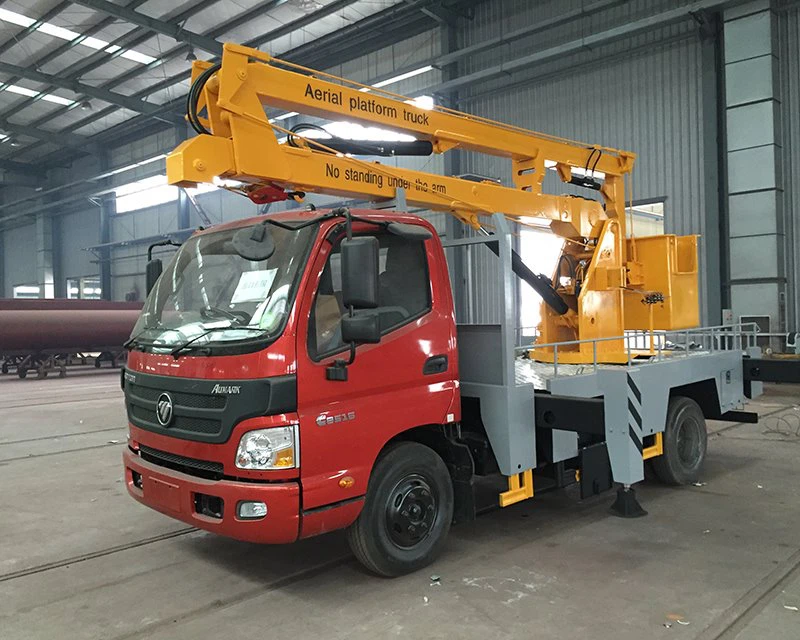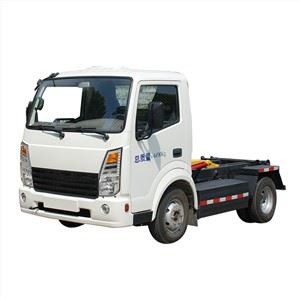When it comes to transporting fuel, gasoline trucks are an essential part of the logistics and transportation industry. If you are in the market for a gasoline truck for sale, this guide will provide you with all the information you need to make an informed decision. From understanding the types of gasoline trucks available to tips on pricing and maintenance, you’ve come to the right place.
Understanding Gasoline Trucks
Gasoline trucks, also known as fuel tankers, are specialized vehicles designed for the transportation of gasoline and other petroleum products. The design and construction of these trucks ensure safe handling, transport, and delivery of volatile substances.
Types of Gasoline Trucks
Gasoline trucks come in various configurations and capacities. Understanding these can help you choose the right truck for your needs.
1. Single Axle Trucks
These are smaller trucks that typically carry a single compartment for gasoline. They are suitable for local deliveries and urban environments.
2. Tandem Axle Trucks
Tandem axle trucks can handle heavier loads and are more stable on the road. They are ideal for longer hauls.
3. Tri-Axle Trucks
Tri-axle trucks are designed for carrying large volumes of gasoline. They are often used for bulk transport and large-scale distribution.
4. Specialty Trucks
Some gasoline trucks come with additional features, such as temperature control, pressure monitoring, and custom compartment configurations for various types of fuels.
Key Features to Look For
When searching for a gasoline truck for sale, consider the following key features:
Tank Material
Tank materials can vary, with options like aluminum, stainless steel, and fiberglass. Each material has its pros and cons in terms of weight, durability, and cost.
Capacity
Gasoline trucks come in various capacities, often ranging from 1,000 to over 10,000 gallons. Determining the right capacity depends on your transportation needs.
Safety Features
Look for trucks equipped with safety features, such as double-walled tanks, emergency shutoff valves, and vapor recovery systems to prevent spills.
Regulatory Compliance
Ensure that the truck meets local and federal transportation regulations, including those set by the Environmental Protection Agency (EPA) and the Department of Transportation (DOT).
Practical Tips for Buying a Gasoline Truck
Set a Budget
Determine a realistic budget that includes not only the purchase price but also operating costs, maintenance, insurance, and fuel expenses.
Research the Market
Explore online classifieds, dealership listings, and auction sites to compare prices and available models. Familiarize yourself with the average market prices for different types of gasoline trucks.
Inspect the Vehicle
Always conduct a thorough inspection of the truck and consider hiring a professional mechanic to evaluate the condition of the vehicle before purchase. Look for signs of wear, leaks, or corrosion.
Consider Financing Options
Investigate financing options from banks, credit unions, and specialized truck financing companies. Compare interest rates and loan terms to find the best deal.
New vs. Used Gasoline Trucks
Deciding between a new or used gasoline truck can significantly affect your budget and long-term plans.
Benefits of New Gasoline Trucks
- Latest technology and features
- Full warranty coverage
- Customization options
Advantages of Used Gasoline Trucks
- Lower initial purchase price
- Depreciation benefits
- Possibility of finding well-maintained vehicles
Where to Find Gasoline Trucks for Sale
There are various platforms where potential buyers can find gasoline trucks for sale.
Online Marketplaces
Websites such as TruckPaper, CommercialTruckTrader, and eBay Motors specialize in heavy-duty vehicles.
Local Dealerships

Many dealerships offer gasoline trucks, often providing financing options and warranties.
Auction Sites
Government and private auction sites can be a great source for used gasoline trucks at competitive prices.
Maintenance Tips for Gasoline Trucks
Proper maintenance is crucial in ensuring the longevity and safety of your gasoline truck.
Regular Inspections
Conduct daily inspections before use, checking for leaks, tire pressure, and the condition of brakes and lights.
Schedule Routine Servicing
Stick to a routine maintenance schedule, including oil changes, filter replacements, and brake inspections.
Keep Records
Maintain a log of all service and maintenance performed on your truck to monitor performance and address issues promptly.
Cost Considerations
The cost of a gasoline truck can vary significantly based on several factors.
Purchase Price

Prices for new gasoline trucks can range from $50,000 to over $150,000, while used trucks might be priced significantly lower, depending on age and condition.
Insurance Costs
Insurance for gasoline trucks can be higher than regular vehicles due to the nature of the cargo. Shop around for the best rates.
Fuel Efficiency
Gasoline trucks typically don’t have high fuel efficiency. While this should be considered, the overall operational costs may still favor a larger capacity truck if it reduces the number of trips.
Frequently Asked Questions (FAQ)

1. How do I determine the right size of gasoline truck for my business?
The right size depends on your transportation needs, the volume of gasoline you need to deliver, and the routes you typically operate. Assess your weekly or monthly volume to guide your decision.
2. What are the major safety regulations for transporting gasoline?
Safety regulations include having proper tank fittings, meeting EPA and DOT standards, using safety placards, and ensuring the truck has emergency shutoff valves and spill kits.
3. How can I finance a gasoline truck purchase?
Financing options include traditional loans from banks or credit unions, leasing options, or financing from specialty truck lenders. Compare rates and terms for the best option.
4. What maintenance should I perform regularly on my gasoline truck?
Regular maintenance include oil changes, tire inspections, checking brakes and lights, and ensuring the integrity of the fuel tank. Follow manufacturer guidelines for the best results.
5. Is it better to buy a new or used gasoline truck?
This decision depends on your budget and needs. New trucks offer warranties and the latest technology, while used trucks can be more affordable. Evaluate the total cost of ownership before making a decision.
6. Where can I sell my gasoline truck when I’m finished using it?
You can sell your gasoline truck through online marketplaces, local dealerships, or auction sites. Ensure to provide accurate details and maintenance records to attract potential buyers.